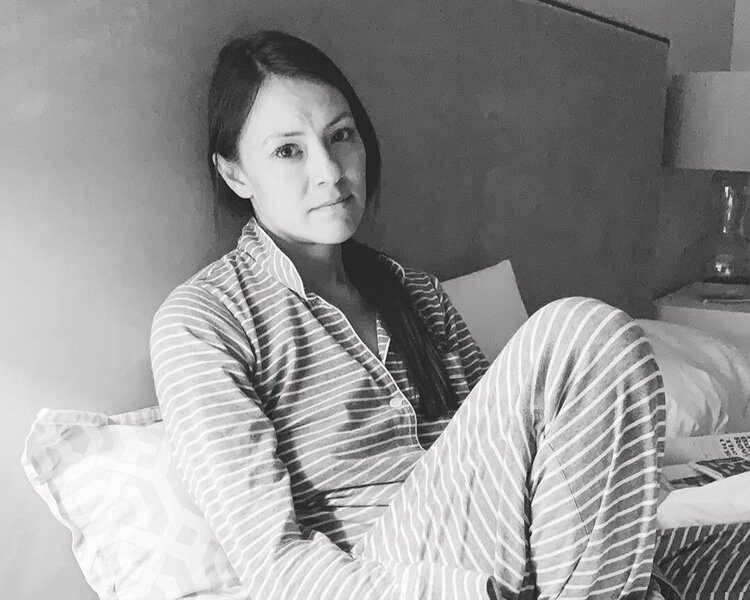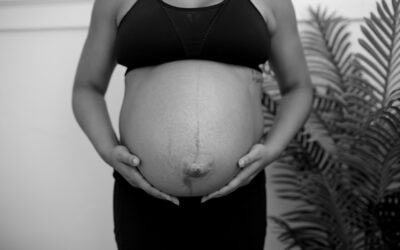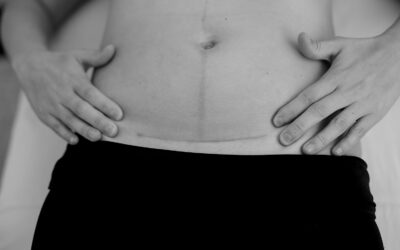Welcoming a child into the world can be one of the most magical experiences that we have as human beings. After all, it’s a miracle of life!
But there is one aspect of being a new parent that we aren’t talking about enough. That’s the mental turmoil that many experience weeks, months, and even years postpartum.
Wondering how to deal with postpartum anxiety? Wondering if it’s more than the baby blues? Maybe postpartum depression? Let’s dive in.
How to Deal with Postpartum Anxiety
Postpartum anxiety is a form of postpartum depression. It can leave new parents feeling worried, fearful, and even paranoid. It’s become even more common in recent years.
Rates of postpartum depression rose three-fold during COVID-19. In this blog we discuss how to deal with postpartum anxiety without medication.
Signs and Symptoms of Postpartum Anxiety
Signs of postpartum anxiety can manifest in a variety of ways. If you think you are developing postpartum anxiety, check for mental and physical symptoms.
Common signs and symptoms of postpartum anxiety include:
- Fatigue
- Difficulty concentrating
- Changes in appetite
- Feelings of worthlessness or guilt
- Feelings of restlessness or agitation
- Irritability and mood swings
- Rapid heartbeat or palpitations
- Muscle tension
- Panic attacks
- Intrusive thoughts or worries that can be difficult to control
- Separation fears
- Racing thoughts and difficulty sleeping
- Nightmares or night terrors
- Physical symptoms such as headaches, stomach aches, or chest pain
- Avoidance of certain situations or activities related to the baby
- Exaggerated startle response
- Obsessive-compulsive behavior (OCD)
- Becoming anxious about the baby’s health and development
Is it “baby blues” or a serious condition?
A new baby is a major lifestyle change. Feeling out-of-sorts, sleep-deprived, and even a little sad during the first few weeks is only natural. Unwanted comments and judgement from family members don’t help!
Look out for unhappiness feelings beyond the two-week mark. Pay attention to excessive worry, dread, nausea, rapid heartbeat and trouble concentrating.
Pay attention if you have hot flashes, changes in appetite or sleep, or other symptoms out of the ordinary. You’ll want to alert your healthcare provider.
Is it anxiety or depression?
Postpartum depression is intense feelings of sadness and even disinterest in the child. Postpartum anxiety results in feelings of intense and uncontrollable worry and dread.
While people use both terms interchangeably, they do not mean the same thing. Postpartum anxiety is a form of postpartum depression. But, they are two separate diagnoses.
Both conditions impact people in the first year following childbirth. PPA can also manifest as a form of obsessive-compulsive disorder.
How common is postpartum anxiety?
Anxiety is often confused and reported as postpartum depression. Postpartum anxiety is a different, more common condition. It’s reported in 10% of all new mothers. Half of women with postpartum depression, including postpartum anxiety, go undiagnosed.
According to NAMI, perinatal mood and anxiety disorders affect many women. While the exact prevalence is unknown, some estimates say as many as 1 million moms face it each year in the U.S. alone.
Dr. Sara’s journey with anxiety
I take medicine for depression and anxiety and started years ago when I was in a crappy relationship. I did everything I knew to help myself- yoga, running, journaling, seeing a therapist. In the end, I decided I needed more help.
I decided to stop taking the medication when I was first trying to get pregnant. The result was lack of sleep for three days. I had insomnia, anxious thoughts, and relentless crying.
After weighing the pros and cons, reading the research, and meeting with specialists, I got back on it. I stayed on it through both of my pregnancies. Despite the risks, I decided to prioritize my mental health problems to better care for my babies.
It was the right choice. I had a history of anxiety and was at risk for developing a postpartum anxiety disorder.
I share this to break down the stigma that goes along with taking meds. No matter what you do, there are many treatment options for postpartum anxiety attacks.
If you take medication, know that you aren’t weak, didn’t try hard enough, meditate enough or exercise enough. At the end of the day, I’m thankful I put my pride aside and accepted help.
Treatments for Postpartum Anxiety
The treatments for postpartum anxiety and depression are pretty similar.
Treatment options depend on the severity of the condition. This ranges from therapy and support groups to lifestyle adjustments. Of course there’s also medication and herbal remedies.
#1 Seek professional help
Talk to a mental health professional such as a psychiatrist, psychologist, or therapist. Find someone who specializes in postpartum depression and anxiety. Cognitive Behavioral Therapy (CBT) has also been helpful for folks struggling with these conditions.
#2 Ask for support or find a support group
Surround yourself with family and friends who can provide emotional and practical support. Reach out to other moms in similar situations for support and understanding. Joining a postpartum depression or anxiety support group can also be helpful.
#3 Take medication
Antidepressants and benzodiazepines can ease severe postpartum anxiety and depression. The long-term use of antidepressants and psychosomatic drugs can create other side effects.
I took my medicine when I was pregnant because the benefits outweighed the risks for me. Check with your doctor. Your doctor may prescribe selective serotonin reuptake inhibitors (SSRIs).
#4 Make time for self-care
Take time out of your day to day routine to do things that make you feel good. Try exercising, getting enough sleep, and eating nutritious meals. Avoid alcohol and drugs. This can reduce anxiety symptoms.
#5 Learn to recognize triggers
Identify activities or situations that might trigger your anxiety. Take steps to avoid them if possible or prepare yourself with coping strategies.
#6 Practice mindfulness and relaxation techniques
Mindfulness meditation and deep breathing exercises can help cope with postpartum anxiety.
Anxiety after breastfeeding
With my first son, I stopped breastfeeding around 14 months postpartum. After a week, I was feeling more anxious than normal. After talking with friends, I learned many of them had the same experience.
This was likely because of the drastic change in hormones when milk supply drops. It helped a lot to know that anxiety is a common ocurrence, but no one told me it could happen.
When I weaned my 2-year-old I wondered if it might happen again. It did. But this time I knew it was a season and that it would end, and therapy and acupuncture helped me navigate that time.
Resources for support of postpartum anxiety
If you need more help on how to deal with postpartum anxiety, below I have listed some resources. Please know that you are not alone in this journey that is motherhood. What you are feeling is likely common. Resources are available to help.
- Postpartum Support International
- Anxiety and Depression Association of America
- Psychology Today
- Check on Mom
Resources local to Louisiana
- ARC (Advanced, Reliable, Comprehensive) Counseling & Wellness. They offer services in Louisiana, as well as in Texas and California.
- Louisiana Perinatal Quality Collaborative
Motherhood and Mental Health Instagram Accounts
- Libby Ward – @diaryofanhonestmom
- Dr. Ashurina Ream – @psychedmommy
- Inna Kashani – @motherhoodtherapy
- Anna Marquardt – @annamarq_
- Alice Pickering – @dralicepsyd
- Bryce Reddy – Mom Support
For more help along your postpartum journey, check out the V-Hive! You’ll find programs on childbirth recovery for those first six weeks post-baby, and a postpartum program for those further along. Check it out for 7 days free!




